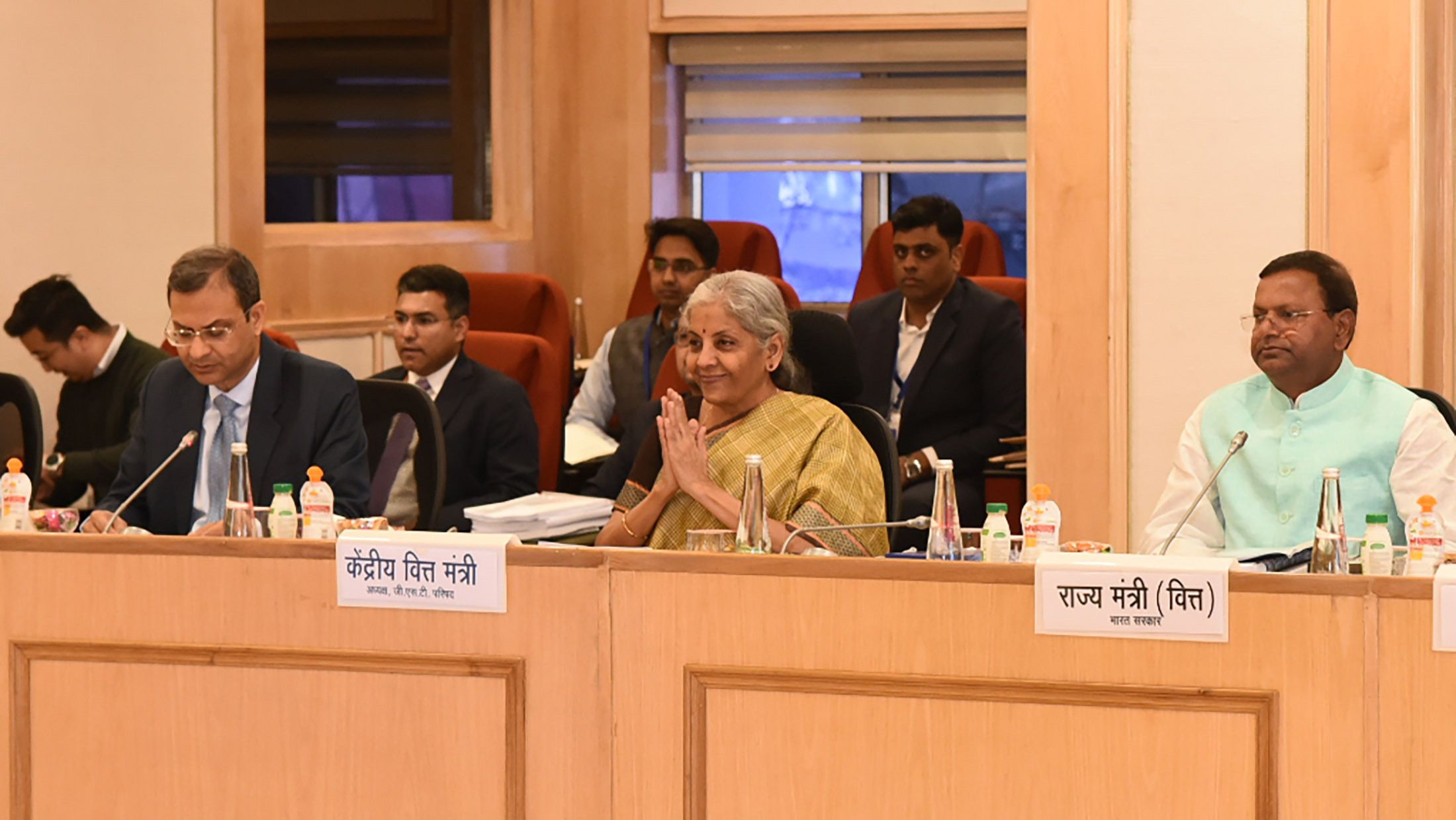Indian Budget 2024
Famous Couplets: Poetic Echoes in India's Budget Speeches
.png)
4 min read | Updated on January 29, 2024, 11:01 IST
SUMMARY
Budget speeches, usually heavy with economic data and policy explanations, rarely evoke poetry. However, some finance ministers have used verse, often in Hindi or Urdu, to express their ideas and connect with the public on a deeper level. These couplets, carefully chosen, go beyond decoration. They serve as effective tools to illuminate economic visions and shape national aspirations, offering insight into India's hopes and challenges at different times.

In the 2020 budget speech, Nirmala Sitharaman delivered a verse by Kashmiri poet Dina Nath Kaul.
Budget speeches, often heavy with economic data, policy jargon, and exhaustive justifications, rarely conjure images of poetic eloquence. Yet, amidst the numbers and parlance, a selection of finance ministers have wielded the power of verse to make their thoughts heard and sentiments reciprocated by the conscience of the nation.
These carefully chosen couplets, often in Hindi or Urdu, go beyond mere decoration. They become effective instruments, applied by leaders to illuminate their economic visions, connect with the public on a deeper level, and even shape national aspirations. Each line, embedded in its historical context, offers a window into the hopes, anxieties, and challenges faced by India at a particular juncture.
Arun Jaitley
In 2017, Arun Jaitley, amidst the storm of demonetization, sought to ease anxieties with a couplet - and he recited
"Iss mod par ghabra ke na tham jaaiye aap, jo baat nayi hai usse apnaaiye aap; Darte hain nayi raah pe kyun chalne se, hum aage-aage chalte hain aajaiye aap."
Mr. Jaitley's words, urging acceptance of change, were laced with historical echoes and chased with hysterical acclamation.
Manmohan Singh
In his landmark 1991 speech that ushered in economic liberalization, Manmohan Singh quoted Iqbal -
"Yunan-o-Misr-o-Roma, sab mitt gaye jahaan say, Ab tak magar hai baqi, naam-o-nishaan hamara."
This powerful couplet, invoking India's enduring spirit, resonated with a nation embarking on a transformative journey. It rings true today just as much as it did then.
P. Chidambaram
Known for his nuanced approach and philosophical inclinations, Mr. Chidambaram has been known to frequently draw upon Tamil poetry. In the "Dream Budget" of 1997, he cited Thiruvalluvar -
"Idipparai Illatha Emara Mannan Keduppar Ilanum Kedum."
**Translation: **Behold the King who repossesses not on those who can rebuke him, he will perish even when he has no enemies.
These lines, a cautionary quote for leaders, served as a reminder of accountability and the dangers of complacency when seated at the helm of power.
Yashwant Sinha
Humour, too, has found its way into budget speeches. Yashwant Sinha, in 2002, used a distich to highlight the burgeoning film industry -
"Film exports have been roughly doubling every year... It is time we brought about a fiscal regime to usher in more 'Khushi' and take away the remaining 'Gham' from the entertainment industry."
Sinha's lighthearted approach underscored the importance of nurturing creative industries. Beyond humor and caution, however, public heads have found an avenue to subtly offer valuable insights into the socio-political context.
Nirmala Sitharaman
In her 2020 budget speech, delivered in the wake of Article 370's abrogation, featured a verse by Kashmiri poet Dina Nath Kaul:
"Saaye mein Dal ke, phoolon mein shamama hai, Shalimar ki har ek gali mein yama hai."
This poignant verse, celebrating Kashmir's cultural heritage, served as a unifying message during a period of political tension.
Conclusion
These are just a few examples of the many couplets that have enriched India's budget speeches. They remind us that economic policy is not merely about numbers, but also about aspirations, anxieties, and the human stories woven into the fabric of a nation.
As we head towards the presentation of 2024's Interim Budget, it is worth remembering that even the driest of pronouncements can be enlivened by the power of poetry, reminding us of the shared dreams and challenges that hold us together as a country.
Next Story
